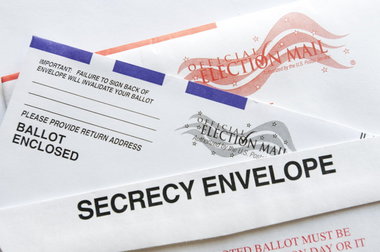Multnomah County Voters Reject New Capital Gains Tax.

Portland, Ore. — Initial results from Tuesday’s special election indicate that Measure 26-238, the initiative aimed at funding free legal aid for tenants facing eviction through a new capital gains tax, is likely to be rejected by Multnomah County voters. According to data from the Oregon Secretary of State’s office, as of 9:45 p.m., over 82% of voters in Multnomah County were against the measure, while approximately 18% were in favor. These numbers are based on nearly 111,000 ballots counted, which represents about 20% of registered voters in the county.
Measure 26-238 proposed the implementation of a countywide adjustable capital gains tax, initially set at 0.75%. The funds generated from this tax, after deducting administrative expenses, would have supported free legal representation for residents of Multnomah County who are at risk of eviction.
Supporters of the measure emphasized that it would help individuals stay in their homes, addressing homelessness at its core. John Bethencourt, one of the measure’s co-organizers, explained, “When you provide free legal representation to tenants facing eviction or displacement, you can often help them maintain their housing until they achieve stability.” Supporters also pointed to the success of similar initiatives, such as New York City’s “Right to Counsel” law, which resulted in 84% of tenants with legal representation avoiding eviction, according to a recent report.
Opponents of Measure 26-238 argued against the measure, claiming that it would place an additional burden on the already high tax rates in Multnomah County and further inflate costs in an unforgiving housing market. Michele Gila, the director of realtor advocacy with the Portland Metropolitan Association of Realtors, stated, “Measure 26-238 would have penalized people for selling a home, saving for retirement with investments, or building a small business.” Gila expressed relief that voters recognized the potential harm of this tax measure and rejected it.
Detractors also highlighted the unintended consequences of the proposed tax, suggesting that it would impose financial hardships on individuals who could not afford to pay it. Retirement plans relied upon by many seniors would have been subject to the tax, leading to concerns about its impact on vulnerable populations. Metro Councilor Duncan Hwang commented, “Measure 26-238 was not designed with everyone in mind. Older populations and limited-English speakers in our communities may have misunderstood the tax requirements, resulting in late fees and penalties. While eviction representation is crucial, the broad taxing mechanism in Measure 26-238 placed an unfair burden on under-represented and under-resourced populations.”
Measure 26-238 did not include explicit exemptions like the federal capital gains tax, which excludes the first $500,000 of profit from the sale of a home for married couples, among other income-based limits. Proponents argued that the measure referenced federal definitions, implying that Multnomah County could interpret it to include the federal exemptions.
Although Multnomah County voters have historically been supportive of tax measures, Measure 26-238 faced more opposition from elected officials than previous examples. Congressman Earl Blumenauer, Metro President Lynn Ann Peterson, Portland Mayor Ted Wheeler, and two county commissioners were among those who publicly voiced their concerns.
Andrew Hoan, CEO and President of the Portland Business Alliance, remarked, “Good intentions don’t always translate into good policy. Voters recognized that we do not need another tax burden on local families and small businesses, as we already have existing tax-funded programs in place to assist tenants facing eviction.” Hoan emphasized the alliance’s commitment to building upon the approved initiatives to ensure that resources are effectively reaching those in need.
Measure 26-238 garnered support from organizations such as the Urban League of Portland, the Democratic Party of Multnomah County, and two major labor unions.



